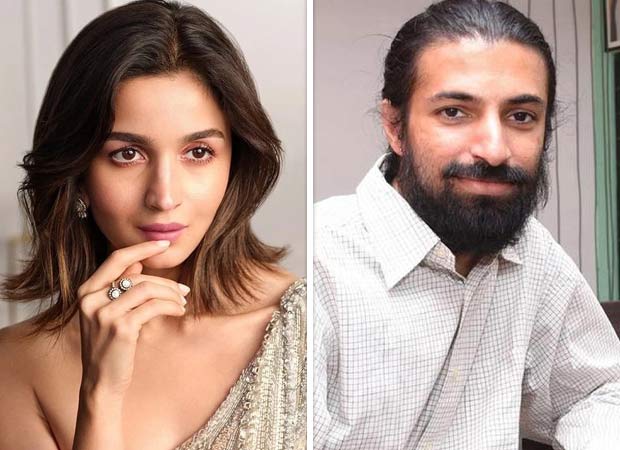The results of General Elections on June 4, that shocked many, led to speculations about a possible change in the power matrix due to the change in the number of seats that BJP and NDA hold in the Parliament. The speculation was echoed by the opposition including AIMIM MP Asaduddin Owaisi by saying today the ruling BJP will not be able to “steamroll” the opposition as the character of the House has changed in the new Lok Sabha.
With the BJP failing to secure a majority on its own, the number dynamics in the Lower House has indeed changed. Prime Minister Modi is now dependent on allies for his government’s survival. However, the extent to which the shift is seen can be a mix of both ‘yes’ and no’
A look into changes in Modi government in the Parliament:
Om Birla 2.0:
The first battle of Modi and BJP will be the appointment of Speaker of its choice. The appointment of Om Birla as Speaker of Lok Sabha had the stamp of authority which was a trademark of both Modi 1.0 and Modi 2.0. With the firm support of allies, the government did not let the Opposition dictate terms on the Speaker’s election and refused to enter into any negotiations over the choice of deputy speaker.The INDIA bloc wanted the post of Deputy Speaker, but the Modi-led government sent out a clear message to them. “First, you support the Speaker’s election, and after that, we can discuss Deputy Speaker.” When one looks at past records, an election for Lok Sabha Speaker had happened only three times till now – in 1952, 1967, and 1976.Rahul Gandhi will not just be ‘Shehzada’
With Rahul Gandhi being lifted to the position of Leader of Opposition (LoP), the biggest change in Parliament for Prime Minister Modi will be his relationship with the Congress leader. In the last 10 years, PM Modi has always referred to the Congress leader as Shehzada. However, the changed number dynamics have now made the former Congress chief an integral part of the government’s functioning for the first time. We saw the first glimpse of this today when Rahul accompanied PM Modi to escort Om Birla to the Speaker’s chair.
Rahul Gandhi is not just ‘shehzada’ for PM Modi now as he will be a part of several parliamentary bodies and panels for key appointments that are headed by the Prime Minister. Rahul may still not have a say in their functioning, but he will be privy to all the discussions.
As LoP, Rahul Gandhi will enjoy the rank of a Cabinet minister, along with an office and staff in the Parliament building.
Emergency to counter ‘Save Consitution’ attack?
The biggest chunk of INDIA bloc’s poll campaign was the need to ‘Save Consitution.’
With the first session of 18th Lok Sabha, the BJP that has been using the emergency of 1975 to attack Congress for the longst incoporated it into a new ‘campaign.’ BJP MPs, including Union ministers, held a protest in the Parliament Complex on Wednesday, targeting the Congress over the imposition of Emergency in 1975 and demanding the opposition party’s apology for violating the Constitution.
The protest by the BJP was seen as a counter move to INDIA bloc’s “Save Constitution” campaign. With Speaker Om Birla echoing the government’s jibe on Emergency, the opposition’s hopes of any perceptible change in the government’s functioning due to reduced numbers – may remain just that.
Is the BJP still the boss?
As the BJP failed to cross the majority mark, the party had to rely on NDA allies to form the government at the centre. Before the formation, many eyes were glued to see the possible changes in functioning of Modi government when compared to the past two terms.
When PM Modi took oath for a record third term in office, the belief was that allies, especially Chandrababu Naidu’s TDP and Nitish Kumar’s JD(U) would walk away with plum portfolios in bargain for their crucial support to run Modi 3.0.
However, that has not been the case. The BJP has not yielded too much space to allies and has kept almost all the important portfolios to itself. The big fours- Amit Shah, Rajnath Singh, Nirmala Sitharaman and Jaishankar were seen returning to their ministries.
Modi 2.0=Modi 3.0?
The initial analysis shows Modi 3.0 will be marked by continuity, unlike Modi 2.0 when change was perhaps the only constant. Prime Minister Modi has retained most of his top ministers and even his officers like Ajit Doval, PK Mishra among others. He has also not changed the portfolios of key ministers. The choice of Speaker also signalled this spirit of continuity.
When talked about change in functioning, the continuity is in contrast to constant change seen in second term is observed. When Modi and BJP returned to power with an overwhelming majority of 303 seats in 17th Lok Sabha, his Cabinet and council of ministers saw several changes. In 2019, the BJP selected Om Birla as Speaker replacing Sumitra Mahajan who presided over Lok Sabha during Modi 1.0.
Balance on policy issues
The above reasons has shown that Modi and his party is likely to remain same, despite the loss in seats. But the biggest challenge for BJP awaits as the saffron party will have to tread a cautious path when it will come to policies of Modi 3.0.
Agniveer, Caste census, reservation are some of the big rocks standing in front of Modi government. When the NDA was formulating strategies to form government, allies like JD(U) went public with their reservations on the Agniveer scheme, which was a flagship policy of Modi 2.0. The caste census is another issue on which the allies would have a different perspective.
During months-long campaigning of elections, the BJP had attacked Congress on several occasions over reservations given to Muslims in Karnataka. However, in TDP, the BJP has an ally which openly supports the idea and is all set to implement it in Andhra Pradesh.
BJP imprint to fade in Budget?
The upcoming Budget that will be presented by Nirmala Sitharaman by late July might introduce incentives, additional grants, or potentially a special category status for Andhra Pradesh under Chandrababu Naidu and Bihar under Nitish Kumar.
These concessions hold significant importance for Naidu and Nitish, potentially outweighing their leverage at the central level.
(with ToI inputs)





:quality(85):upscale()/2025/02/12/709/n/43463692/affdf68367acc608c50d79.20958537_.png)

